HOME >> CHINA
Disappearing forests
Source:Global Times Published: 2014-8-21 20:18:01
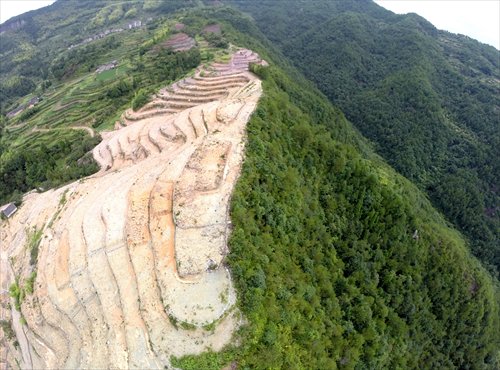
Part of the mountain has been turned into terraced fields in Xianju county, Taizhou, Zhejiang Province. Photo: Tencent News, Greenpeace
Mountainous forests in East China's Zhejiang Province are being consumed due to the need to develop more farmland.In fact, many forests have already been turned into fields. Trees were chopped down and harvested for wood, leaving the land to be plowed and turned into terraced fields.
One of the key factors is the low availability of land. As a leading province in terms of economic development and urbanization, Zhejiang is in constant need of land for industrial and construction use. A lot of farmland, as a result, has been taken over.
On the other hand, because China has a stipulated "red line" base minimum of 1.8 billion mu (120 million hectares) of fields, the removal of any fields needs to be matched with the addition of the same area of land.
This has meant that local governments in Zhejiang have turned their sights toward the mountains.
According to environmental organization Greenpeace, local governments approved projects to "improve the production of forests," in which the land should be cleared and renewed. However, after the trees were felled, no substitute trees were planted. Instead, the cleared land was then planted with crops and became fields.
Selling the quotas for farmland "swaps" also became an income source for county-level governments.
Unfortunately, the newly claimed fields, due to a lack of irrigation facilities, can only grow very limited varieties of crops. This situation is worsened by their remote locations in the mountains. As a result, many such fields have been left with only weeds growing throughout them.
Global Times
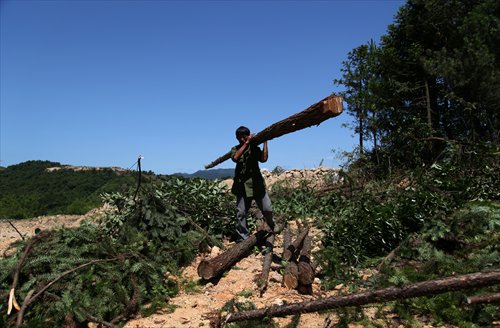
Trees are harvested for wood as the forests are turned into fields. Photo: Tencent News, Greenpeace
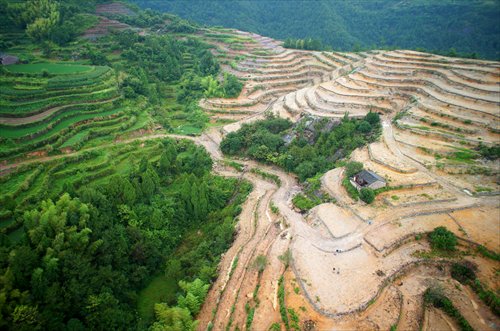
A farmer's home stands among the terraced fields claimed from the forests. Photo: Tencent News, Greenpeace
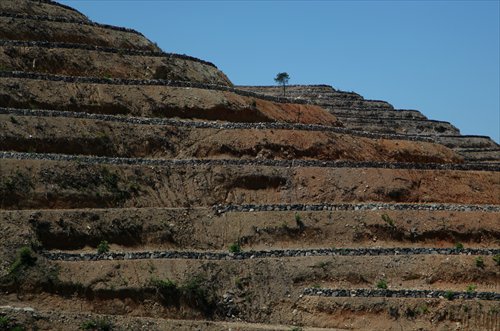
The newly claimed fields lack irrigation facilities. Photo: Tencent News, Greenpeace
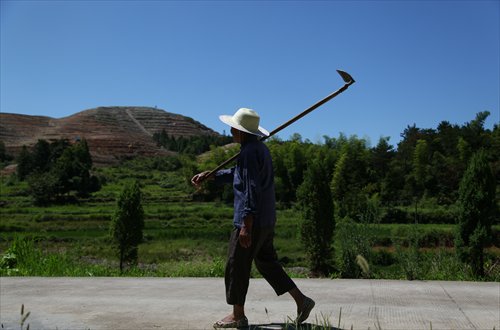
A farmer walks at the foot of the mountains. Photo: Tencent News, Greenpeace
Posted in: In-Depth